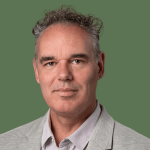Tampere IAS Open Colloquium: Will Science Save the World?
Time: Wednesday, 19 February 2025, at 13.00-17.15
Place: Technopolis Yliopistonrinne, Häggman Hall, Kalevantie 2
Keynote speakers, their abstracts and bios
Darrin Durant: Imagined Expert Authority in Technopolitical Decisions
 Abstract: The field of Science and Technology Studies (STS) has long scrutinized the potentially restrictive influence of expert knowledge in public discourse about the future. This research often highlights how experts may inadvertently narrow deliberations on crucial issues, such as the values that should shape our future, the questions worth asking, and the impacts that matter most. This presentation examines the assumptions underlying the portrayal of expert judgments at the intersection of technoscience and political decision-making as authoritarian attempts to dominate public discourse. While historical instances of technocracy illustrate such tendencies, framing expert judgment as elitist control is democratically detrimental. In an era where public debate is saturated with diverse mobilizations of technoscience and expertise, what does it mean to expand the scope of discussion? Considerations include public health decisions during the COVID-19 pandemic, the catastrophic risks associated with nuclear reactors, the political challenges of nuclear waste disposal, and responses to climate disasters.
Abstract: The field of Science and Technology Studies (STS) has long scrutinized the potentially restrictive influence of expert knowledge in public discourse about the future. This research often highlights how experts may inadvertently narrow deliberations on crucial issues, such as the values that should shape our future, the questions worth asking, and the impacts that matter most. This presentation examines the assumptions underlying the portrayal of expert judgments at the intersection of technoscience and political decision-making as authoritarian attempts to dominate public discourse. While historical instances of technocracy illustrate such tendencies, framing expert judgment as elitist control is democratically detrimental. In an era where public debate is saturated with diverse mobilizations of technoscience and expertise, what does it mean to expand the scope of discussion? Considerations include public health decisions during the COVID-19 pandemic, the catastrophic risks associated with nuclear reactors, the political challenges of nuclear waste disposal, and responses to climate disasters.
Bio: Darrin Durrant is Associate Professor of Science and Policy at the University of Melbourne. HIs research focuses on disputes between experts and publics, and he has published widely on controversies involving nuclear waste management, nuclear power, public policy about energy options, and more recently is investigating climate change policy-making and the impacts on democracy of disinformation and misinformation. In general terms, Durant theorizes the relations between experts and democratic discussion and decision-making.
Johan Söderberg: The precarious future for evidence-based decision-making and expertise in a world shaped by authoritarian populism
 Abstract: As of 20 January 2025, with Donald Trump in White House for a second time, political support for evidence-based policy making and deference to expertise, which has been the order-of-the-day for as long as anyone can remember, will come to dissipate. In the good old days, evidence-based policy was twisted into policy-based evidence. That might have been hypocritical, but, as the saying goes, hypocrisy has a civilizing effect on those who must appear to conform to its demands. What can be expected from political decision-making when it has liberated itself from even pretending to be rational, well thought out, and striving for some idea of common good? The decline of the authority of the expert vis-à-vis other claimants to knowledge has been discussed for more than four decades in academic literature, and it has often been hailed as a win for democracy over technocratic elites. It is urgent to revisit this discussion in the light of the new political situation. The dynamic between scientific experts and populace will change dramatically when the latter is backed by the state, and the former end up as the opposition.
Abstract: As of 20 January 2025, with Donald Trump in White House for a second time, political support for evidence-based policy making and deference to expertise, which has been the order-of-the-day for as long as anyone can remember, will come to dissipate. In the good old days, evidence-based policy was twisted into policy-based evidence. That might have been hypocritical, but, as the saying goes, hypocrisy has a civilizing effect on those who must appear to conform to its demands. What can be expected from political decision-making when it has liberated itself from even pretending to be rational, well thought out, and striving for some idea of common good? The decline of the authority of the expert vis-à-vis other claimants to knowledge has been discussed for more than four decades in academic literature, and it has often been hailed as a win for democracy over technocratic elites. It is urgent to revisit this discussion in the light of the new political situation. The dynamic between scientific experts and populace will change dramatically when the latter is backed by the state, and the former end up as the opposition.
Bio: Johan Söderberg is Professor in Theory of Science at the Department of Philosophy, Linguistics and Theory of Science, Gothenburg University, and he is an associate editor of Science as Culture. His empirical interests sprout in all kinds of directions: drug-users doing unauthorized research on anti-addictive entheogens, hackers developing tools for DIY-medicine, the history of the post-truth phenomenon, and other things besides. Theoretically, however, he always returns to investigate the troubled interface between scientific knowledge claims and ideology.
Pia Vuolanto: Contestation of expertise. Medicine as a case in point.
 Abstract: Contestation of expert knowledge is common in many domains. This talk is based on long-term analysis of contestation of medical expert knowledge. It aims to find aspects in the contestation that apply to all fields of expertise. For example, in the medical field, patients may question evidence-based recommendations on vaccines, medications and medical treatments, among other things. Vuolanto will discuss the key elements of contestation of medical expertise and aim to give inspiration to analyze these key elements in other fields.
Abstract: Contestation of expert knowledge is common in many domains. This talk is based on long-term analysis of contestation of medical expert knowledge. It aims to find aspects in the contestation that apply to all fields of expertise. For example, in the medical field, patients may question evidence-based recommendations on vaccines, medications and medical treatments, among other things. Vuolanto will discuss the key elements of contestation of medical expertise and aim to give inspiration to analyze these key elements in other fields.
Bio: Pia Vuolanto is an Academy Research Fellow and researcher at the Unit for Social Research at Tampere University, Finland. Her research intersects with science and technology studies, higher education studies, philosophy of science, public health, and sociology of health and illness. Her main research topics include contestation of expertise, criticism of medicine, knowledge production in complementary and alternative medicine, controversies around health, and vaccine hesitancy. She recently led an EU-funded study on vaccine hesitancy (VAX-TRUST) and have co-edited a book Complementary and Alternative Medicine: Knowledge Production and Social Transformation (Palgrave 2018) with Caragh Brosnan and Jenny-Ann Brodin Danell.
Antti Kuusisto: Interpretability as the next step in AI
 Abstract: Recent developments in AI have significantly shaped the way we think of the current society and its future. This raises the obvious question about the next steps in AI. Where is it going, and why? One of the central related challenges concerns human interpretability of the results and outcomes obtained by using tools based on modern AI. This talk investigates novel technologies that have been developed to mitigate the black-box nature of modern AI-methods via offering solutions that produce – in addition to results – also human-interpretable explanations why the particular results were obtained.
Abstract: Recent developments in AI have significantly shaped the way we think of the current society and its future. This raises the obvious question about the next steps in AI. Where is it going, and why? One of the central related challenges concerns human interpretability of the results and outcomes obtained by using tools based on modern AI. This talk investigates novel technologies that have been developed to mitigate the black-box nature of modern AI-methods via offering solutions that produce – in addition to results – also human-interpretable explanations why the particular results were obtained.
Bio: Antti Kuusisto is a Senior Research Fellow at the Tampere Institute for Advanced Study at Tampere University in 2024–2027. He currently heads a team of six researchers, which is part of the Mathematics Research Centre in the Computing Unit of the Tampere University ITC Faculty. The research team works on mathematical logic, theoretical computer science and explainability in artificial intelligence. The topics range from the internal complexity of abstract automatic reasoning processes to more real-life work on AI and human-interpretable classifiers. Kuusisto heads the Research Council of Finland consortium project titled “Explaining AI via Logic” with teams from Tampere and Helsinki.

